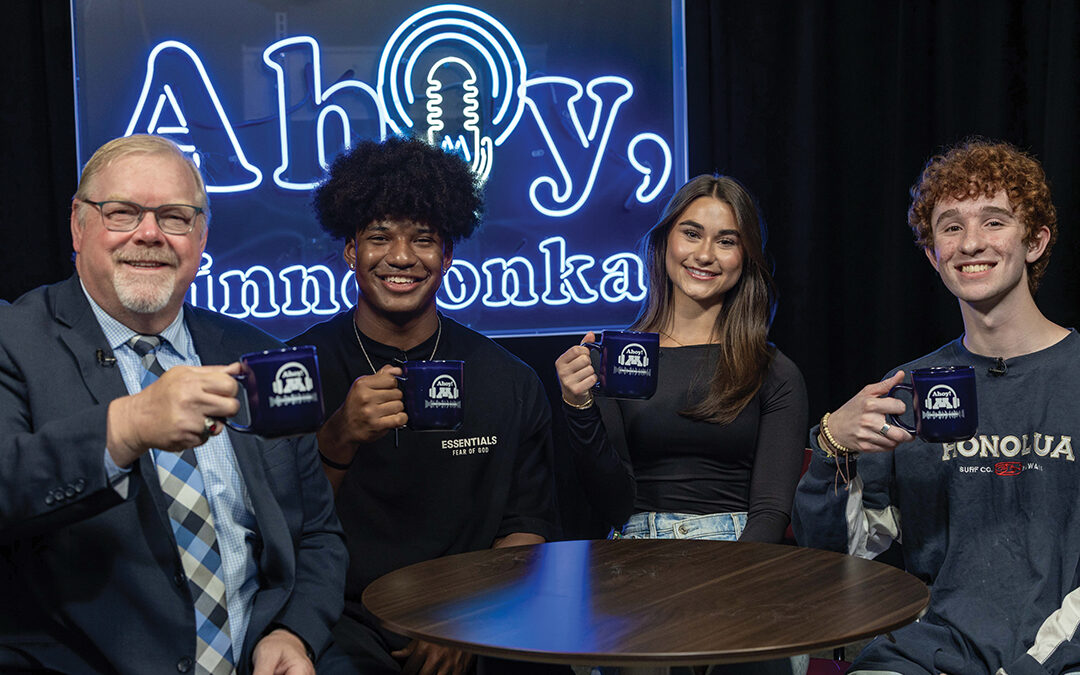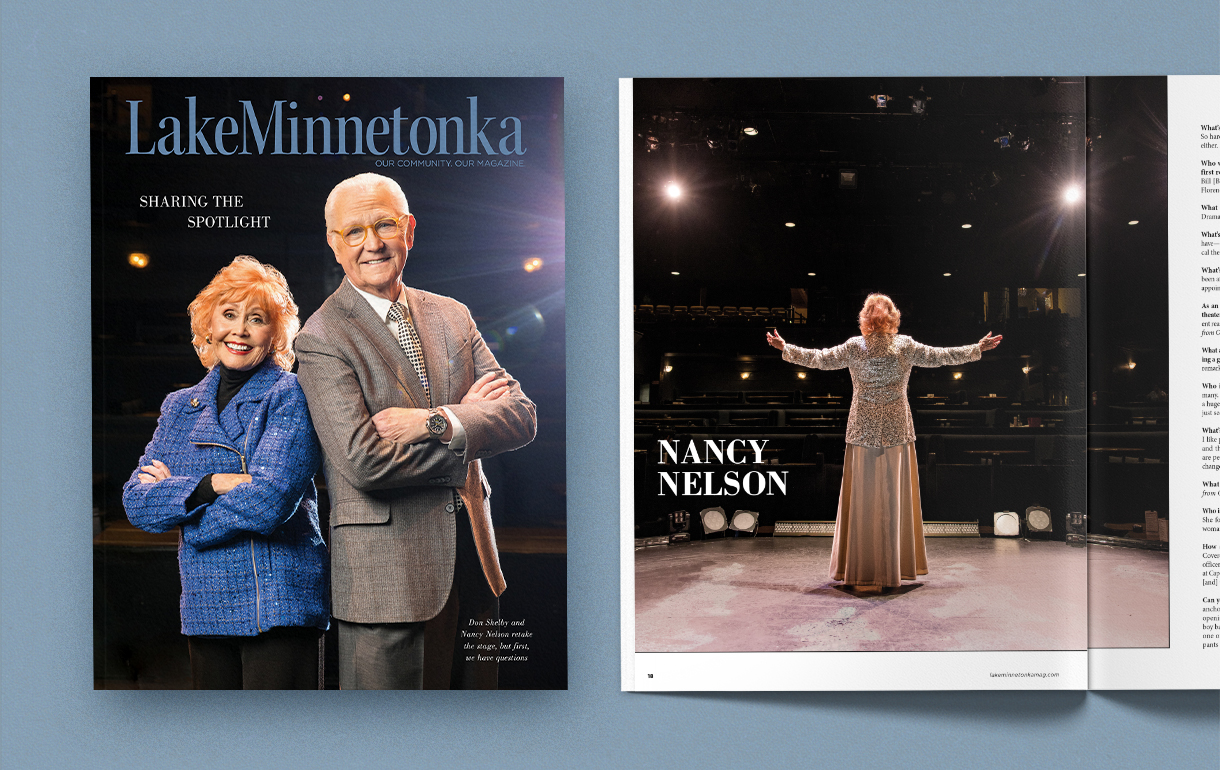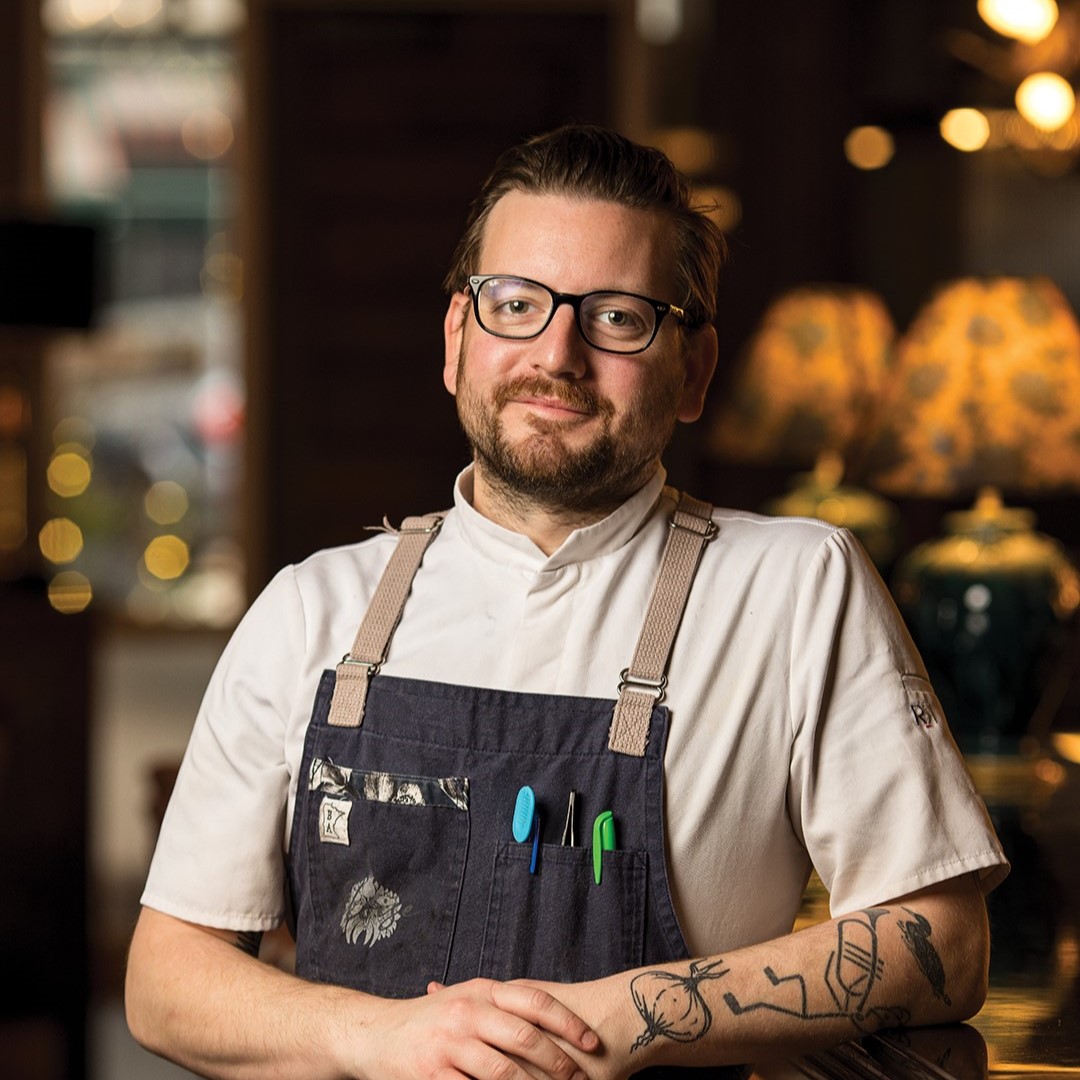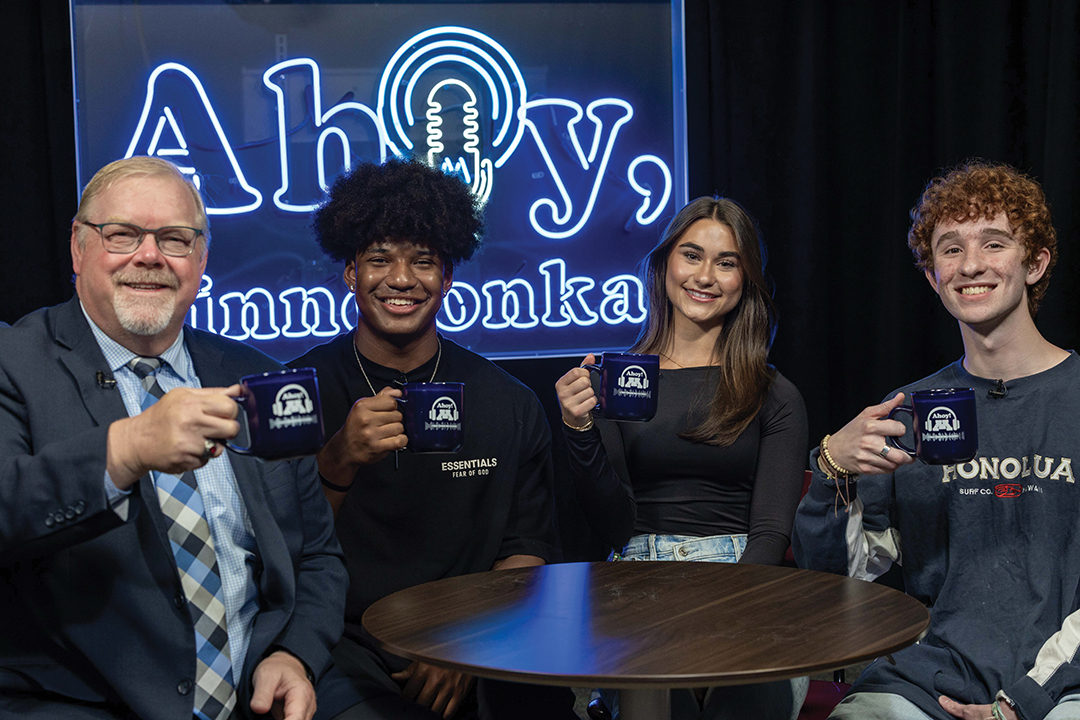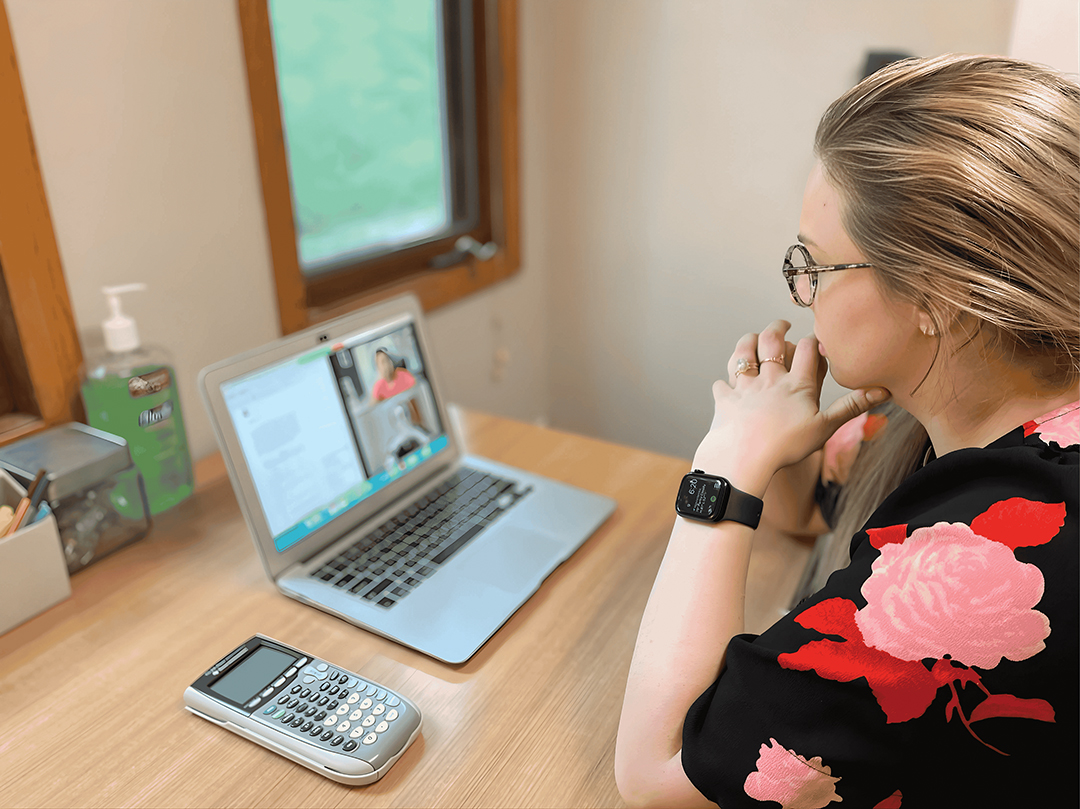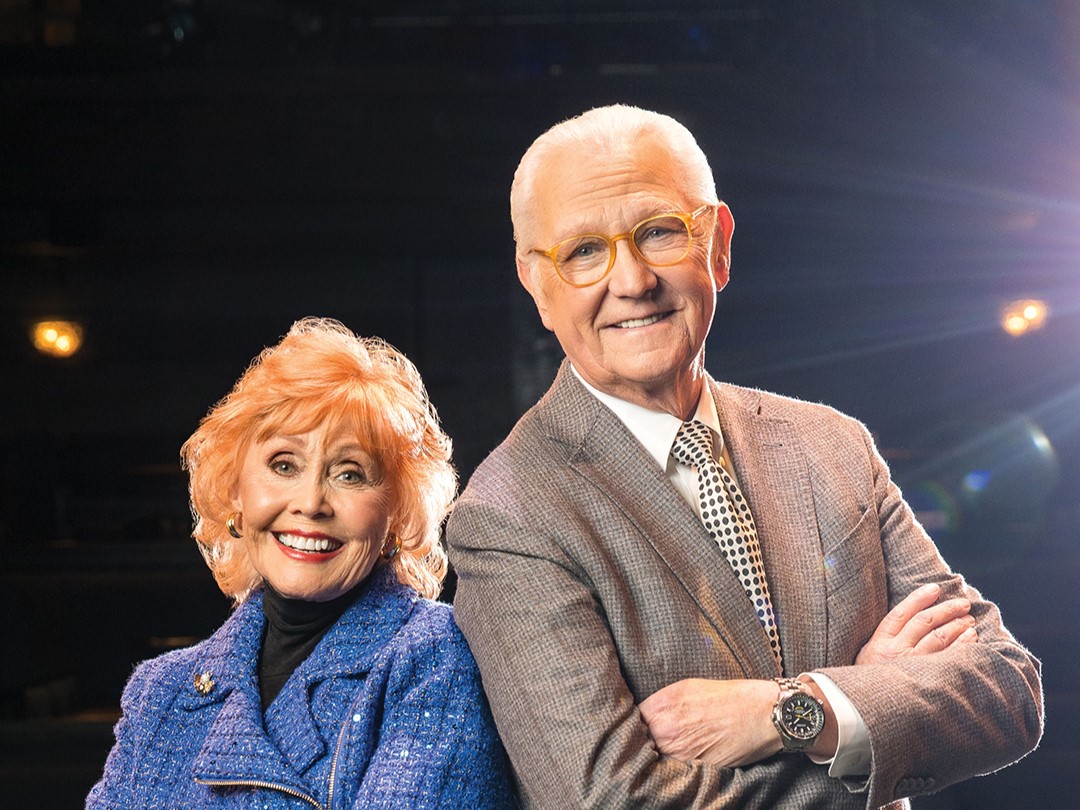
Photos: Chris Emeott
Cori Levin brings compassion and support to individuals and families.
There are a lot of events in life for which we prepare—weddings, births, life celebrations and the like, but that same effort should be placed on planning for something else, too. “It’s important that we plan for end-of-life, and I think it’s a really big gift that children can give to their parents or parents can give to their kids to say, ‘I am cared for. I am getting organized, so when the time comes, you can grieve my loss. You don’t have to pick up the pieces,’” Cori Levin says.
Levin, a Minnetonka native, runs Navigating Elderhood. With a focus on the holistic component of health, Levin is an end-of-life doula trained by International End of Life Doula Association. (She is also a birth doula, certified nurse’s assistant, master level reiki energy healer and yoga teacher.) Along with end-of-life care, Navigating Elderhood offers healing and recovery services and professional personal care.
Now a Mound resident, Levin opened Navigating Elderhood four years ago. “I look at this as providing a very unique service as a compassionate caregiver, trained medical professional, holistic provider [and] end-of-life doula, bringing comfort, bringing care and skilled navigation to families and individuals, who are in a place where they’re facing real health conditions, aging situations and/or difficulties and in a time where people just need support,” she says.
Healing and recovery care offers assistance for people of any age recovering from surgery or managing a disease or treatments. It includes daily living activities, care plan management, family communication, light meal preparation, medical appointment transportation, pharmacy pick-ups, monitoring of vitals, yoga and reiki (a Japanese form of energy healing).
It also includes creating more individualized care plans, professional personal care services are for people recovering (injury or illness), or managing diseases or diagnoses. Examples include helping someone with dementia manage symptoms or simply normalizing what families are going through.
“For others, it’s managing pain, helping them thrive in their everyday life, whether it’s helping them with physical therapy exercises, getting them to doctor appointments, perhaps cooking, pure companionship and just listening,” Levin says. “A current Lake Minnetonka client said to me, ‘You empower me in my healing process,’ because, as a doula … I empower her to do the things that I know she loved doing.”
Levin’s job is not to fix; she fills in the gaps when medicine can’t help. “With dementia, there isn’t a pill that you can take to fix your brain from deteriorating, so how do you work with it?” she says. That’s where Levin’s care helps people continue to live their lives by visiting grandchildren, going for lunch, meeting friends for coffee, doing Pilates class, gardening, baking or doing 20 minutes of movement in their home, for example.
As a caregiver with an understanding of what the healthcare system can and can’t offer, Levin provides one-on-one care while meeting clients where they’re at in their aging or recovery process. For elderly clients, their adult children might be occupied navigating careers, raising children or living out of state. Levin is the eyes and ears for a family by, for example, taking notes during medical appointments and sending weekly emails to the client’s family members.

End-of-life care helps people live their lives the way they want until the end. “I look at myself as an advocate, as somebody who is flexible because life is messy, death is messy, families are messy, the unknowns are messy [and] health situations are messy,” she says. “I provide bedside comfort for patients and families. I’m sharing with families what end-of-life can look like [and] what I’m seeing with the experience I’ve had with several people as they have passed on, transitioned, died. I’ve learned through this work that death can be very beautiful …”
Although hospice is different than Levin’s holistic practice, it still plays a medical role and can provide therapies. “I wish families would get on hospice earlier because they have more options then,” she says. “I help families navigate the process and [discover] how hospice can help.” Levin fills in the gaps by providing comfort care, vigils and spiritual and emotional support.
Levin also is a volunteer doula at Sholom Hospice in St. Louis Park and St. Paul, where she has a special connection to her late grandfather’s legacy. (Paul Ross created and funded the music memory program for people in hospice.)
While Levin says her occupation oftentimes doesn’t feel like work, that doesn’t mean it’s uncomplicated or without personal impact. “I get emotional at some of the deaths, so I process that with my support group because I know I need what I need,” she says. “The challenge is navigating families and their emotions and the messy relationships and bringing love and comfort when we all have our different space, whether it’s a more stubborn personality or unfinished business between individuals at the end of life.”
Levin says it’s never too early to write down and discuss wishes. “When we prepare for death, we better face it when the time comes,” she says. “We’re all meant to die, and all natural things come to an end. Making it not a medical thing is very beautiful …”

Cori Levin with an elderly client.
Comfort and Respect
When her late mother’s (Carole Cuthbertson) health took a turn in the spring of 2021, Mary Wilfahrt contacted Levin for help with assisting Cuthbertson cope with her declining health.
“Having [Levin] and her services in our lives was invaluable,” Wilfahrt says. “[Levin] was not judgemental; she took everything me and my mom said seriously—even if they conflicted. [Her] knowledge of how life ends and what people who are dying need was also incredibly helpful.”
Cuthbertson had five wishes for what she wanted at the end of her life, and all were honored. “One of them was allowing her to make decisions until she was no longer capable and making sure she was respected until the end,” Wilfahrt says. “Nothing was surprising, but it was a comfort to have … so we knew exactly what she wanted.”
“When you are in a position where your loved one’s life is coming to an end, having someone metaphorically and literally holding your hand gives confidence in the choices you need to make,” Wilfahrt says. “[Levin] was with our family from spring 2021 until my mother’s death on October 13, 2021. Her presence was also a comfort, knowing that she—[Levin]—was with me, and I was not alone, despite having other aunts and family around.”
Wilfahrt says, “Losing a loved one is never easy whether it is expected or not. [Levin] got to know both myself and my mother throughout the process, so when the time came to say goodbye to my mom, [she] understood how to support me, made suggestions she thought my mom would like and made my mom’s passing a peaceful one.”
Navigating Elderhood
612.636.4129
Instagram: @navigatingelderhood

